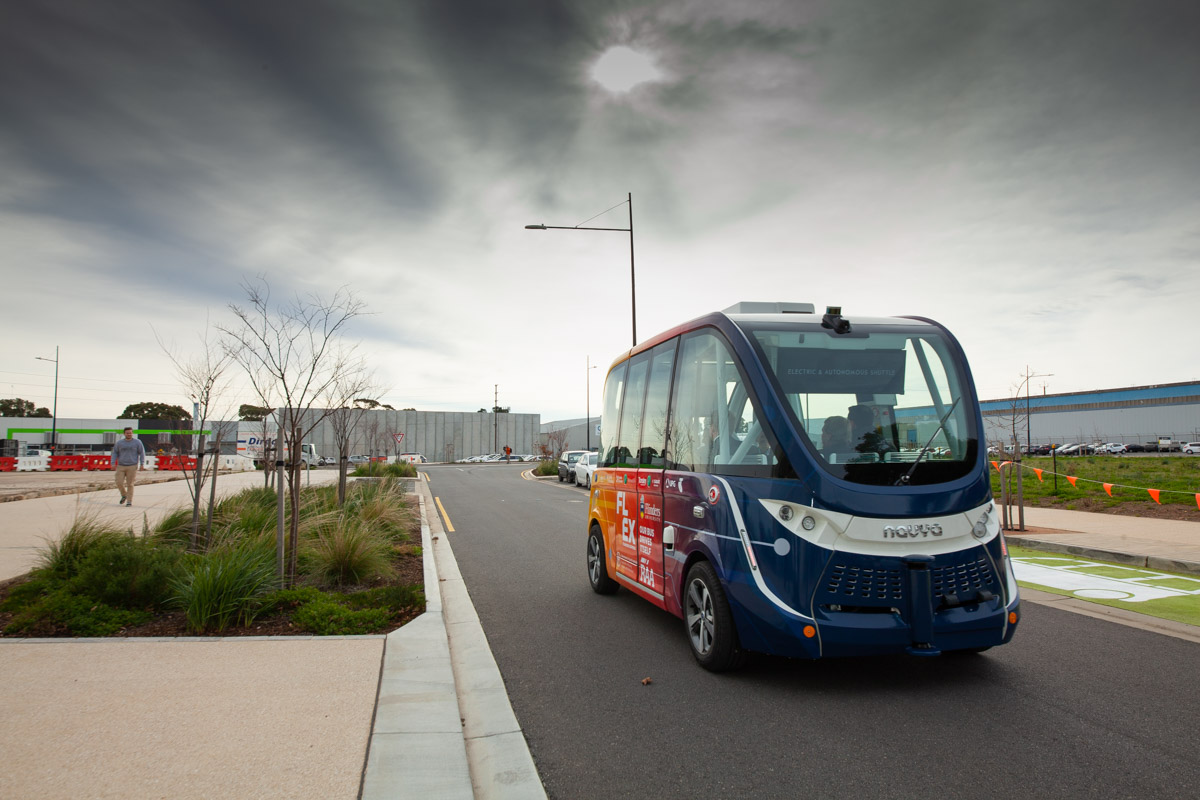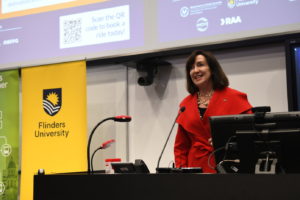
Stage two of an innovative driverless passenger shuttle trial at Tonsley plans to offer on demand technology for local residents, introduce high-tech infrastructure to improve autonomous driving and establish a remote operations control centre to simulate no onboard chaperones.
The Flinders University Express Shuttle (FLEX) will carry 11 seated passengers on an expanded 2.8km route around the Tonsley Innovation Precinct, including the popular train station, as a test bed for the future adoption of autonomous technology in South Australia.
One of the use cases plans to introduce on-demand technologies through a mobile app which is being developed with industry partners RAA and establishing a remote supervision centre with systems integrator SAGE Automation at Tonsley. The trial aims to understand how the application of different technologies and infrastructure can enable the operation and accessibility of automated vehicles.
The pilot is also investigating the integration of autonomous bus technology with SA's transport network and the public response to driverless technologies.
Flinders University Head of Civil Engineering, Professor Rocco Zito, says stage two of the FLEX trial will develop further understanding on the system requirements for automated vehicles by establishing Tonsley as an AV test bed for future trials and operations.
"It's important to learn how the use of automated vehicle t technology can be adapted into our future planning with the integration of other technologies, so stage two of the FLEX trial can provide greater insights into developing the physical infrastructure and technology required to provide better services for the public and we're encouraging everyone to try it out."
"For example, we are evaluating the development of Vehicle to Infrastructure (V2I) communications enabling FLEX to talk with traffic lights at signalised intersections to improve safety our trial is also expanding with the establishment of an autonomous vehicle test bed."

RAA is excited at the latest trial of this mobility technology, and we are keen to see the benefits it provides to commuters,'' says RAA's Mobility Technology Specialist Mark Borlace said.
"As the state's largest member organisation, we are invested in the evolution of transport and are glad to share our expertise as a project partner."
Keolis Downer CEO David Franks says, "we are pleased to support the project by providing our expertise in the trialing and testing of automated vehicles with innovative technologies as it provides valuable learnings for the future operations of public transport."
Trailing new technologies at Tonsley
FLEX which was introduced to Adelaide in 2018, provides a link from the Tonsley Train Station to six bus stops within the Tonsley Innovation District, including the Tonsley Village residential area.
Customers can book a ride on FLEX from the Tonsley train station or from any bus stop to travel within the Tonsley Innovation Precinct by accessing the FLEX website or scanning a QR code along the route. FLEX operates five days a week, Monday to Friday from 10am to 2pm.
FLEX led by Flinders University, is an iMove CRC project, with funding partners including the South Australian Government Department for Infrastructure and Transport, RAA, along with industry supporters multi-modal transport operator Keolis Downer, SAGE Automation and AV shuttle technology provider Navya.






